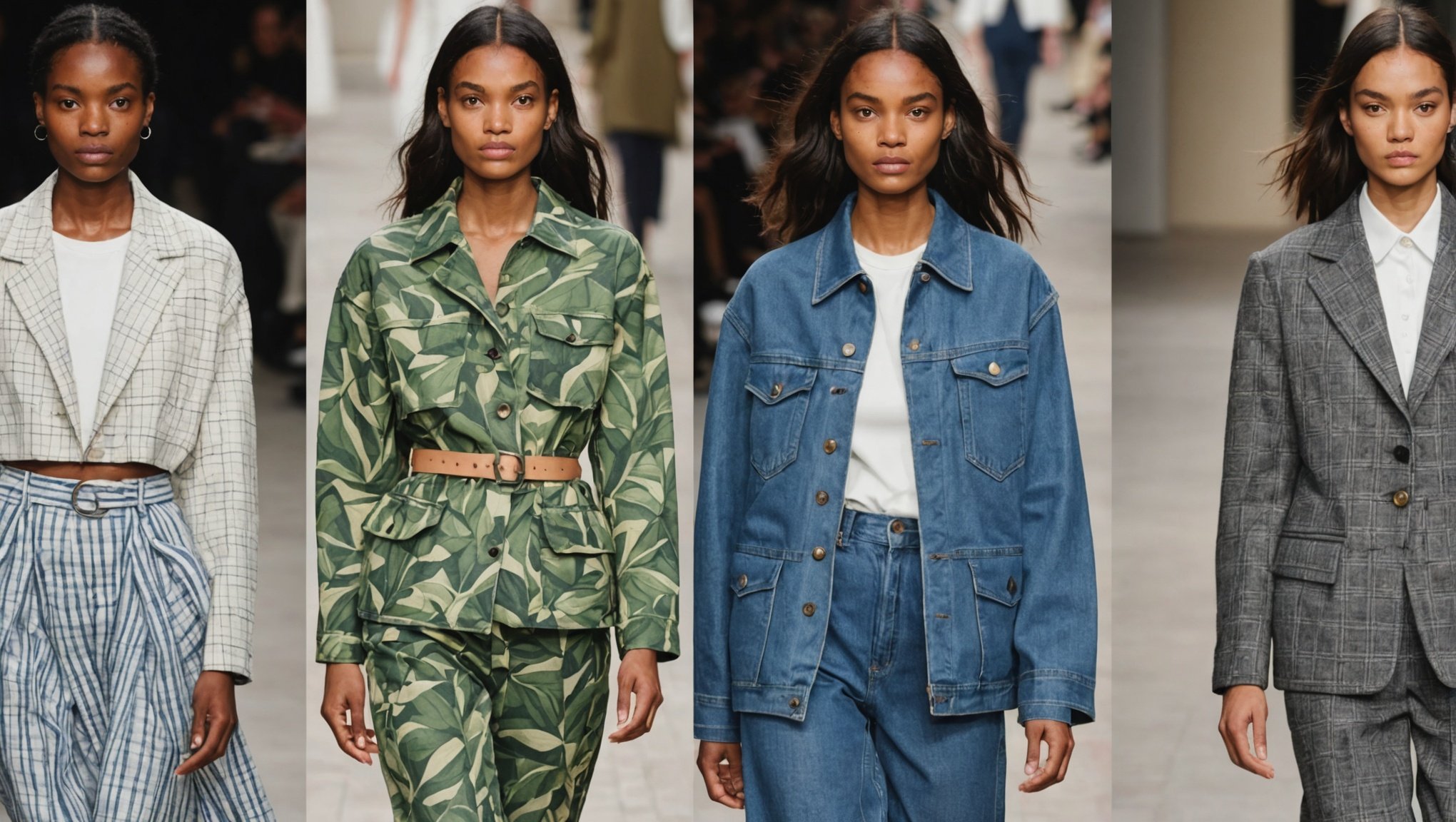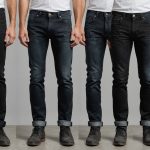In the current climate, sustainable fashion is more than just a buzz-worthy catchphrase. It is a commitment to producing clothing that respects both people and the planet. This involves using materials that are recycled or organic, fair production practices, and ethical standards throughout the entire supply chain. In the quest for sustainability, many brands across the UK are shifting towards more environmentally friendly fabrics and production methods. So, what are the most fashionable sustainable fabrics that are making a mark on UK designers and shaping the future of the fashion industry? Let’s dive into the world of sustainable materials and find out.
Organic Cotton: The Go-To Sustainable Material
Organic cotton stands tall as one of the most popular sustainable materials in the fashion industry. Unlike conventional cotton, organic cotton is grown without the use of harmful pesticides or genetically modified organisms. This makes it a healthier choice for the environment, the farmers, and ultimately, the end consumer.
Also to discover : Which Fashion Schools in the UK Offer Workshops on Sustainable Design?
Organic cotton is also certified by independent bodies, ensuring that it meets strict environmental and social standards. These assurances make it a favourite among brands that value transparency and traceability. Not only does organic cotton have a smaller environmental footprint, but it also offers the familiar comfort and versatility of traditional cotton, making it a popular choice for everyday pieces.
Recycled Materials: Turning Waste Into Wardrobe Staples
Recycled materials represent another significant trend in the world of sustainable fashion. Brands are increasingly exploring creative ways to turn waste into wonderful pieces of clothing. This includes recycling plastics into polyester, repurposing fishing nets and industrial nylon, or even reusing old clothes to create new garments.
This might interest you : Stylish finds: your guide to y2k clothing websites
The use of recycled materials in fashion helps to reduce the volume of waste going into landfills and the demand for new raw materials. Plus, it can result in highly durable and stylish clothing. Brands like Rapanui and Finisterre are leading the way in the UK with their innovative use of recycled materials, transforming discarded items into high-quality wardrobe staples.
Natural Fabrics: Sustainable and Luxurious
Natural fabrics, derived from renewable resources, are another cornerstone of sustainable fashion. These include materials like linen, hemp, and silk, which are biodegradable and require relatively low amounts of energy and water during production. Natural fabrics are not only sustainable but also offer a touch of luxury, with their unique textures and premium feel.
Brands like Beaumont Organic and Celtic & Co have been championing natural fabrics in their collections, showing that sustainability and luxury can indeed go hand in hand. When shopping for clothing made from natural fabrics, be sure to look for pieces made with responsibly-sourced materials, which are grown and harvested with respect for both people and nature.
Ethical Animal-Based Fabrics: Kindness in Every Thread
Animal-based fabrics, such as wool and leather, have been wardrobe staples for centuries. However, the fashion industry is increasingly recognizing the need to source these materials ethically. This means prioritizing animal welfare, as well as environmental sustainability.
Ethical animal-based fabrics typically come from animals that have been raised humanely and are often by-products of the food industry. Brands that use these materials, such as Hiut Denim Co and Elvis & Kresse, are committed to creating pieces that are not only stylish but also cruelty-free.
Innovative Sustainable Fabrics: The Future of Fashion
The fashion industry is also embracing innovative, sustainable fabrics that push the boundaries of what’s possible. These include materials like Pinatex, a leather alternative made from pineapple leaf fibres, and Tencel, a soft and durable fabric derived from sustainably harvested wood pulp.
Brands that use these groundbreaking materials are at the forefront of the sustainable fashion movement, proving that ethical clothing can be cutting-edge and fashionable. These innovative fabrics offer new possibilities for designers, allowing them to experiment with different textures and styles while maintaining their commitment to sustainability.
So, whether you’re a designer looking to incorporate more sustainable materials into your collections or a conscientious shopper seeking out ethical brands, it’s clear that there are plenty of fashionable and sustainable fabric options to choose from. With the fashion industry continuing to evolve and innovate, the future of sustainable fashion in the UK looks brighter than ever.
Sustainable Fashion: A Movement Beyond Fabrics
Sustainable fashion is a holistic approach that extends well beyond the choice of fabrics. It is about creating a system which can be supported indefinitely in terms of environmentalism and social responsibility. Top picks of brands like Stella McCartney, Rapanui, and Finisterre are setting the tone for this movement in the UK by implementing fair trade practices and maintaining transparency in the supply chain.
While organic cotton, recycled materials, natural fabrics, ethical animal-based fabrics, and innovative sustainable fabrics are taking centre stage, it’s important to note that sustainability in fashion is not limited to fabric choice alone. It’s also about how these materials are sourced, who is making the clothes, and the impact of these processes on the environment and society.
For instance, brands that are rated good on brand ratings platforms often have ethical working conditions in place to protect the rights and wellbeing of their workers. They also strive to reduce their carbon footprint through energy-efficient production processes and eco-friendly packaging. Brands like Beaumont Organic and Hiut Denim Co are great examples of this, championing fair trade practices in their operations.
Moreover, several fashion brands are also working to combat the fast fashion culture by promoting slow fashion. This involves producing high-quality, durable items that are designed to last, rather than disposable, trend-driven pieces. This not only helps to reduce waste but also encourages a more mindful approach to consumption, helping consumers to make more informed choices and appreciate the value of their clothing.
The GOTS certified and OEKO-TEX certified labels are also gaining traction in the UK fashion scene as consumers become increasingly aware of the social and environmental impact of their clothing purchases. These certifications provide assurance that the textiles used in the clothing are produced in an environmentally and socially responsible manner, from the harvesting of the raw materials to the final product.
Conclusion: The Future of Sustainable Fashion
The future of sustainable fashion in the UK appears promising, with increasing numbers of brands and designers turning to eco-friendly and ethical practices. As more consumers become aware of the impact of their purchasing decisions, there is growing demand for brands that are transparent about their supply chain, use sustainable materials, and uphold ethical labour practices.
It’s not just about the clothing brands anymore. Rating shops have also become instrumental in promoting sustainable fashion. They offer sizes rating to ensure a better fit, thereby reducing the need for returns and exchanges that contribute to environmental damage.
While organic cotton and recycled materials have been the mainstay of sustainable fashion, innovative materials like Pinatex and Tencel are pushing the boundaries of what is possible. These sustainable fabrics are offering new opportunities for designers to experiment with, without compromising on their commitment to sustainability. Fashion brands like Stella McCartney are leading the way by incorporating these innovative materials into their collections.
The shift towards sustainable fashion is not just a trend, but a necessity. As we continue to grapple with the effects of climate change and social inequality, it’s more important than ever for the fashion industry to step up and take responsibility for its impact. With the progress made so far and the increasing commitment among brands and designers, the future of sustainable fashion in the UK is indeed looking bright.
In conclusion, sustainable fashion is not just a catchphrase or a momentary fad in the UK. It’s a conscious and mindful way of living and consuming that respects and values both people and the planet. It’s about making choices that are not just good for us, but also good for the society and environment we live in.










